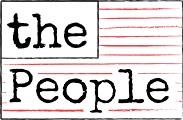Civics U: Powers to the People
“The powers not delegated to the United States by the Constitution, nor prohibited by it to the States, are reserved to the States respectively, or to the people.” Tenth Amendment to the U.S. Constitution
The previous Civics U article on Federalism dealt with the division and assignment of power between the federal government and the states as established in the Tenth Amendment. The question then remains of what powers are thereby reserved to the people. In the American democracy the most important and ultimate power is to be that which is reserved to and exercised by the people. As Lincoln repeated* in his famous Gettysburg Address, government is to be “of the people, by the people, for the people.”
This was already expressed in the Preamble to the U.S. Constitution that begins, “We the People of the United States… do ordain and establish this Constitution for the United States of America.”
It is difficult to identify the powers that belong to the people for two reasons: first, the amendment does not identify specific powers, but simply reserves any powers not delegated to the federal government or reserved to the States to the people; and second, the people may still exercise their power through the state and federal governments as their means and instruments.
There are other indicators of the people’s power, such as in the Preamble mentioned above, the reference in the Declaration of Independence to the right of the people to alter their form of government, and other illustrations found in state constitutions. The Texas Constitution reflects both the power of the state and the power of the people as follows:
THE TEXAS CONSTITUTION
ARTICLE 1. BILL OF RIGHTS
That the general, great and essential principles of liberty and free government may be recognized and established, we declare:
Sec. 1. FREEDOM AND SOVEREIGNTY OF STATE. Texas is a free and independent State, subject only to the Constitution of the United States….
Sec. 2. INHERENT POLITICAL POWER; REPUBLICAN FORM OF GOVERNMENT. All political power is inherent in the people, and all free governments are founded on their authority, and instituted for their benefit
THE TEXAS CONSTITUTION ARTICLE 1. BILL OF RIGHTS
Likewise, the Indiana Constitution says: Section. 2. That all power is inherent in the people; and all free Governments are founded on their authority, and instituted for their peace, safety and happiness. For the advancement of these ends, they have at all times an unalienable and indefeasible right to alter or reform their Government in such manner as they may think proper. IARA: Full text of the 1816 Constitution (in.gov)
The people have the power, but the American system is not a direct democracy. The people do not decide and vote on policies directly (with the occasional exceptions of public referenda and petitions.) Rather, the American system is a representative democracy and a republic where the people elect representatives as their proxies to carry out their will (at least theoretically). And if the people’s representatives do not do this satisfactorily, the people can elect someone else to be their representative. This is a simple concept, but it is the people’s fundamental right and ultimate power.
One difficulty in our democratic system is that the people are divided in their views. The system is to provide for the right and rule of the majority and to protect the rights of the minority. But today there is a lack of consensus among the people, the electorate, on many major issues. And many decisions become “issues” because of the lack of agreement and consensus. In other words, even when the people have the power to make decisions, a lack of agreement makes the decisions and the decision making process difficult at best and controversial and divisive at worst.
In earlier years of the Republic there certainly were disagreements and debate, and even a disfranchisement of certain groups. But there was generally among the majority an acceptance of a certain underlying world view and values. Today differences in world views and values divide us, and the question is whether or how we, the people, can maintain unity and agree on what kind of society and government we want.
Lynn Huenemann
lhuenemann@q.com
*”Lincoln evidently borrowed the now-famous three-part phrase. In 1384, John Wycliffe wrote in the prologue to his translation of the Bible, ‘The Bible is for the Government of the People, by the People, and for the People’ (Familiar Quotations by John Bartlett, 1951 edition). Bartlett cites Theodore Parker using this phraseology in a sermon in Boston’s Music Hall on July 4, 1858, noting that Lincoln’s law partner William H. Herndon visited Boston and returned to Springfield, Ill., with some of Parker’s sermons and addresses. Herndon wrote that Lincoln marked with pencil the portion of the Music Hall address ‘Democracy is direct self-government, over all the people, by all the people, for all the people.’ ”
